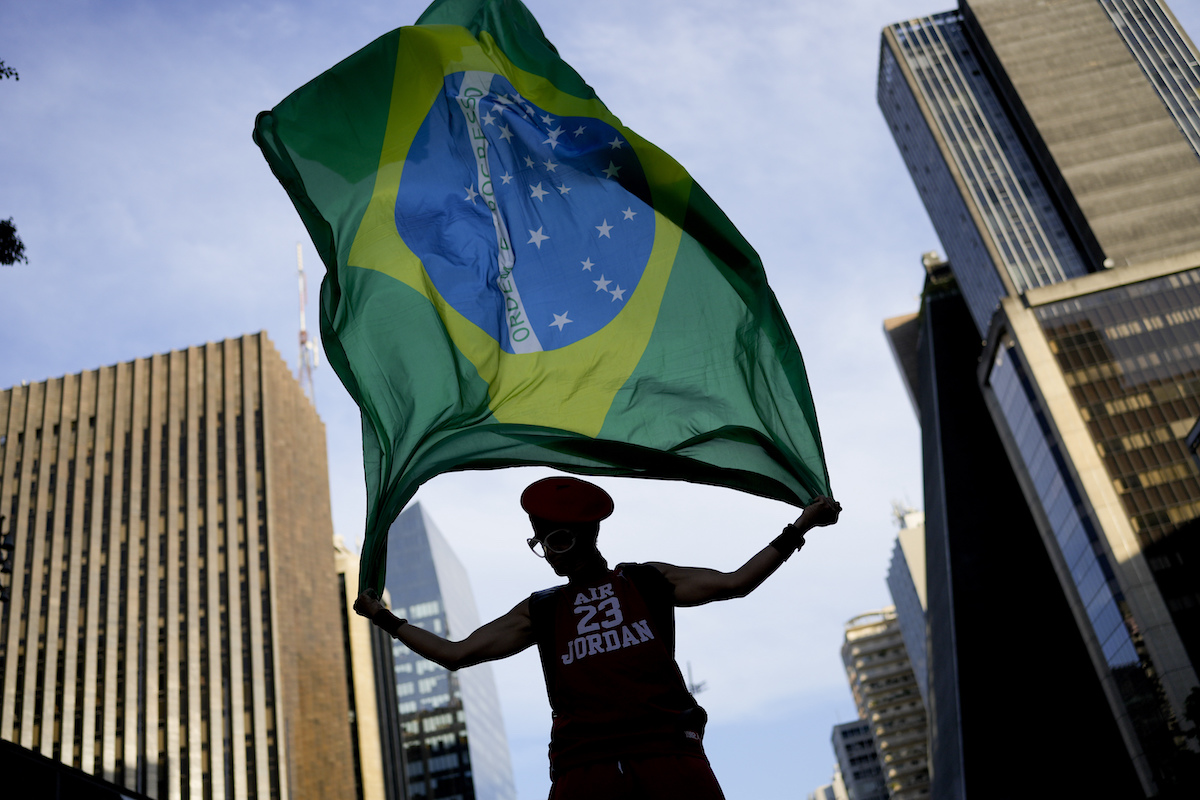

AP Photo/Matias Delacroix
If last year the rainy season began and ended with floods, causing havoc and deaths in the states of Pernambuco, Minas Gerais, and Bahia, this year the catastrophe started in São Paulo’s northern coast with the city of São Sebastião heavily hit by storms, leaving more than 50 people dead due to landslides and flooding.
Streets became rivers and houses were completely destroyed, with cars dragged as if made of paper and entire sections of the road surrounding the city vanishing in the region’s worst tragedy in 56 years.
The usual excuses were given by politicians, such as that it rained more than expected. But the fact is that, year after year, no investments are made in urban planning and especially the poorest residents are pushed to at-risk areas on the sloped edges of the cities.
Unlike former President Jair Bolsonaro, however, who at the end of 2021 preferred to ride a jet ski during a day off to visit rain-hit areas in the state of Bahia, President Luiz Inácio Lula da Silva immediately went to the affected areas in São Paulo and promised to help with reconstruction.
Policies Shift Under President Lula
Bolsonaro, by the way, remains in the United States and increasingly out of the spotlight, though he’s being criticized by allies for failing to stay relevant.
In Brazil, President Lula has significantly shifted away from several of Bolsonaro’s policies, especially foreign policy. Despite saying several times that he preferred to adopt a neutral position in relation to the Russian invasion of Ukraine, Brazil joined other countries at the United Nations in voting against the invasion, as well as supporting a declaration against Russia and signing a joint communiqué with the U.S. that contained tougher language against Russia.
Brazil did, however, refuse to sell arms to Ukraine.
These more proactive stances diverge not only from Bolsonaro’s but also from earlier speeches by Lula da Silva himself and part of his Workers’ Party that do not deny sympathy or even extend blatant support to Russia within a Cold War logic that has taken over the Brazilian Left.
Defending Indigenous Lands
Lula has also proposed a new and stronger global environmental governance. He has tried to use the Amazon rainforest to position Brazil as a leader in climate debates, as well as to seek foreign support and financing for the preservation of the region—the results of which, however, remain to be seen. In fact, the destruction of the rainforest continued unabated in February, despite efforts by Brazil’s minister of the environment, Marina Silva, to halt the advance of agribusiness, mining, and illegal clearing of forests for lumber.
In the Yanomami Indigenous reserve, however, the government’s efforts have borne fruit. Illegal miners and other invaders are beginning to leave Indigenous lands—though not without resistance and threats of more violence.
Hundreds of children and adults have died in recent years from starvation and diseases that are easily treatable, and the Bolsonaro government is accused of cutting all aid to the Yanomami even while it knew they were starving.
Calls for Coup Cool Off
In addition to allegations involving the potential genocide of Yanomami Indigenous people, Bolsonaro must still fear investigations into the attempted coup on January 8, in which his supporters stormed the seats of power in Brasília. Thousands of his supporters are in jail or under investigation and Bolsonaro is being investigated by the Federal Police and the judiciary for his role in the coup attempt.
Earlier this month, Sen. Marcos do Val, an ally of the former president, denounced an alleged plot to wiretap Supreme Court Justice Alexandre de Moraes as well as prevent Lula’s inauguration. Days later, the senator tried to retract his statements, saying he was under the influence of medication.
Do Val, before the excuse of being medicated, said he had been coerced by Bolsonaro into participating in the coup attempt and discrediting Justice Moraes, one of those who have most actively spoken out against Bolsonaro and his supporters. Flávio Bolsonaro, also a senator and the son of the former president, did not deny that there was a meeting to discuss the wiretapping of Justice Moraes, but said that the denunciation of do Val did not constitute “any kind of crime.”
Do Val’s denunciation reinforces the argument that Bolsonaro conspired to prevent Lula da Silva from taking office and that he possibly knew, if indeed he was not behind it, the coup attempt.
On the streets, Bolsonaro supporters seem to have given up protesting and setting up encampments near military bases. In early February, however, a Bolsonaro supporter set himself on fire in protest against the Supreme Court, reportedly shouting “Death to Xandão!” as he burned, in reference to Minister Alexandre de Moraes. He died the next day in the hospital.
Carnival, too, seems to have cooled the coup spirit among Bolsonaro supporters, at least for now.
***
Raphael Tsavkko Garcia is a journalist with a PhD in human rights (focused on migration and diaspora). His portfolio is here. Twitter: @Tsavkko


